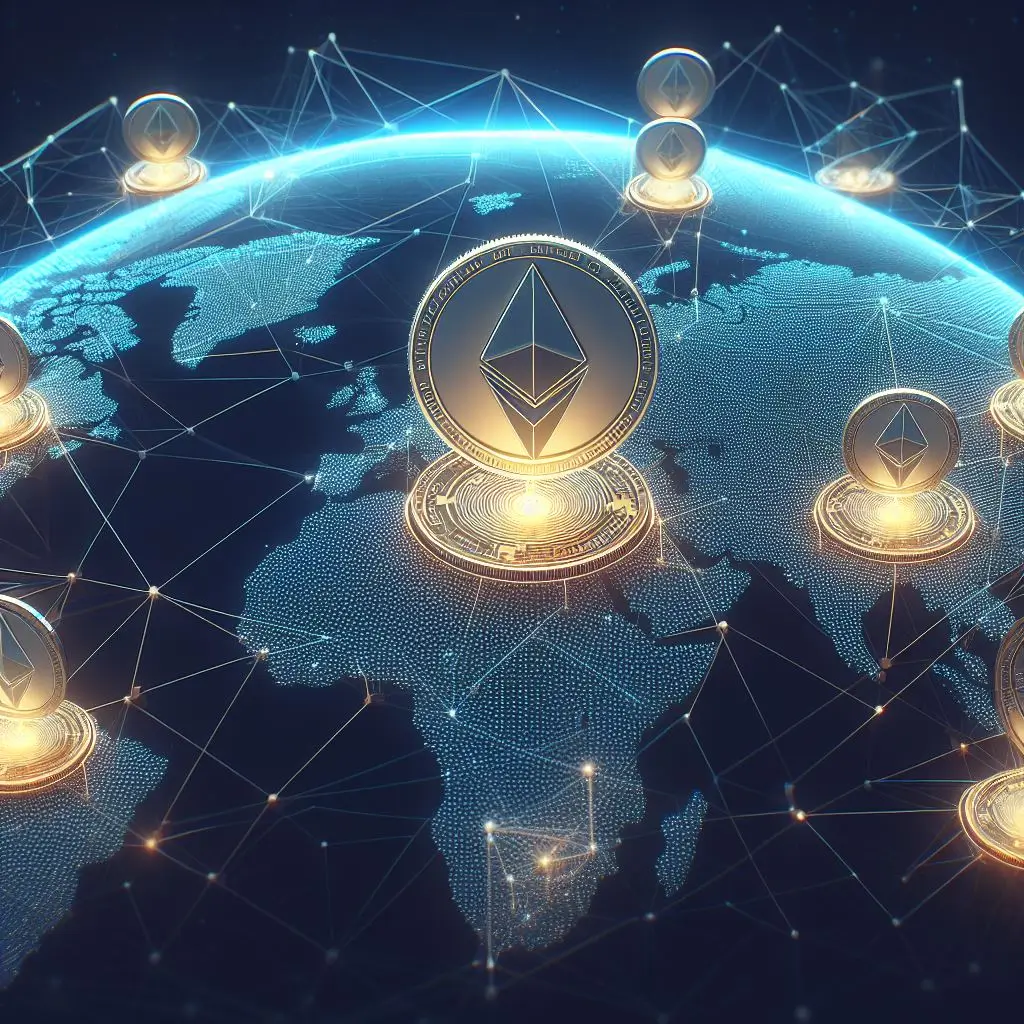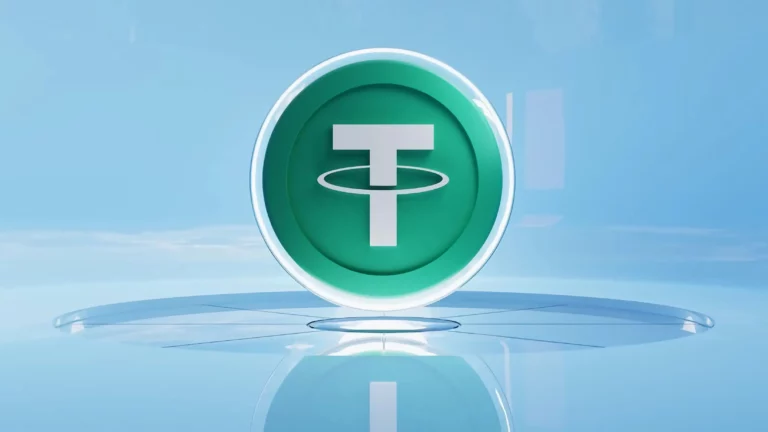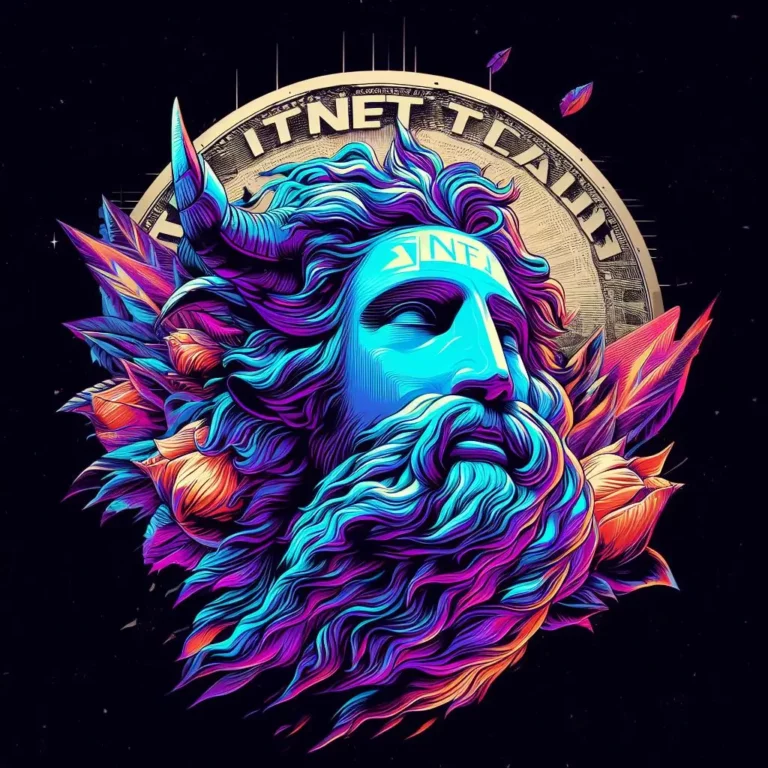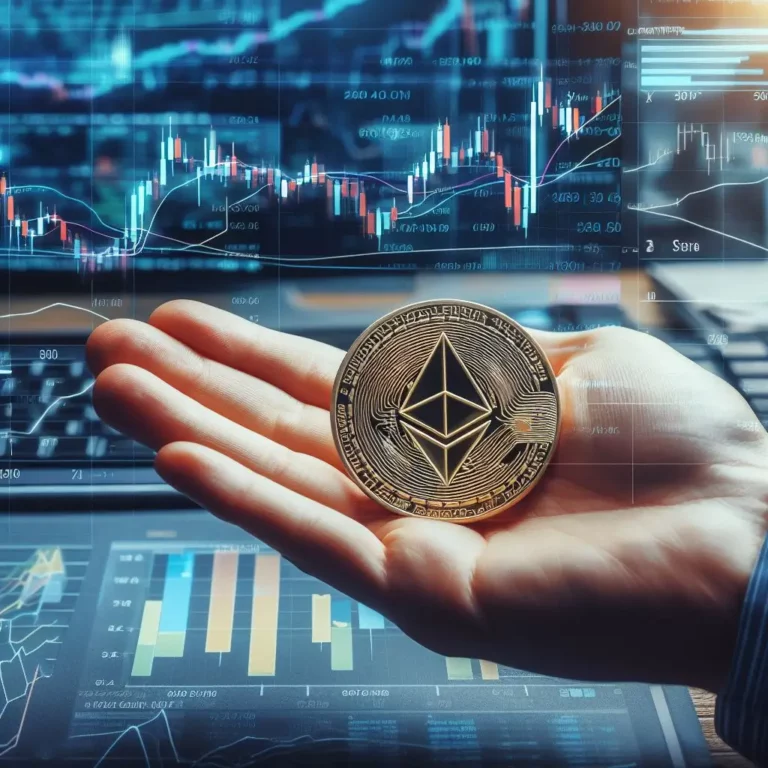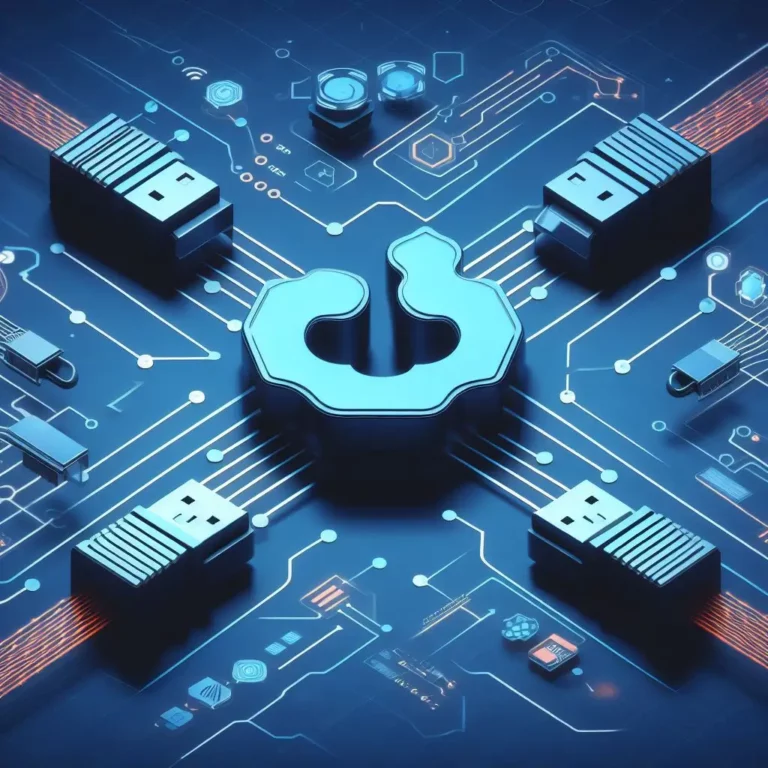Welcome to the world of Decentralized Autonomous Organizations (DAOs), where the power of governance, business, and innovation is transferred into the hands of the people. In this first section, we will immerse ourselves in the essence of DAOs, explore their deep-rooted connection to blockchain technology, and highlight the pivotal importance of understanding their significance in the ever-evolving realm of crypto and blockchain.
DAOs: People-Powered Governance
DAOs, or Decentralized Autonomous Organizations, are a groundbreaking concept at the core of blockchain and decentralized technologies. They empower individuals and communities to influence the future through lines of code and smart contracts on the blockchain. DAOs are the embodiment of people-powered governance.
One classic example of a DAO is “The DAO,” which originated as a crowdfunding project on the Ethereum blockchain. It was akin to a digital venture capital fund, where contributors received tokens representing their stake in the organization. These tokens provided voting rights and a direct hand in shaping the project, exemplifying the influence of decentralized decision-making.
The Blockchain Connection
DAOs and blockchain technology go hand in hand, creating a harmonious ecosystem. The blockchain acts as the solid foundation on which DAOs thrive, providing the transparency, security, and immutability required for these digital entities to operate seamlessly.
It serves as the distributed ledger, meticulously recording every transaction and decision within the DAO, ensuring trust and accountability.
Empowering the Crypto and Blockchain Landscape
In a landscape that revolves around cryptocurrency trading and groundbreaking technological innovation, DAOs stand as a symbol of empowerment. Understanding DAOs isn’t just an academic exercise; it’s an imperative need. Whether you’re a crypto enthusiast, a blockchain developer, or an enterprising entrepreneur, DAOs have the potential to reshape your journey in this dynamic space.
As we navigate through the sections ahead, we’ll delve deeper into the inner workings, advantages, challenges, and real-world examples of DAOs. We’ll explore the future of DAOs and illuminate how you can actively participate in this transformative movement.
So, fasten your seatbelts and prepare to embark on this enlightening journey through the world of Decentralized Autonomous Organizations, where the power truly resides in the hands of the people.
Historical Context
Now that we’ve established what Decentralized Autonomous Organizations (DAOs) are, let’s take a step back and travel through time to understand how these digital entities came into being and how a pivotal incident shaped their trajectory.
1. A Glimpse into the Early Days of DAOs
In the early days of blockchain and cryptocurrency, the concept of DAOs began to take shape. Picture this: the crypto community was exploring ways to create organizations that could operate without the need for traditional intermediaries. DAOs emerged as a potential solution, offering a transparent and decentralized approach to governance and decision-making.
2 The DAO Incident: A Watershed Moment
But, as with any revolutionary concept, there are challenges to overcome. In 2016, the DAO community faced a significant setback with what is now known as “The DAO incident.” This event, while tragic in the short term, played a crucial role in the evolution of DAOs.
Imagine this: The DAO had raised over $150 million in Ether (Ethereum’s cryptocurrency) from investors. However, a vulnerability in the code was exploited, resulting in a significant portion of the funds being siphoned off. This event led to a contentious debate within the Ethereum community, and a contentious hard fork of the Ethereum blockchain occurred, leading to the creation of Ethereum Classic.
The DAO incident raised questions about the viability of DAOs and the need for smart contract auditing and security. It was a harsh lesson but a necessary one to improve the technology and prevent similar vulnerabilities in the future.
3. The Evolution of Technology and Concept
Despite this setback, the concept of DAOs continued to evolve. Developers and the crypto community learned from the mistakes of the past and began to refine the technology behind DAOs. Security measures were improved, and a better understanding of governance models was developed.
As we journey through the following sections, we will explore how DAOs have grown and matured since those early days. We’ll delve into the mechanics of how they work, the advantages they offer, and the challenges they still face.
We’ll also look at real-world examples of successful DAOs that demonstrate the potential of this technology. So, let’s continue our exploration of the world of Decentralized Autonomous Organizations and see how they’ve persevered and grown in the face of adversity.
How DAOs Work?
In our previous section, we explored the historical context of Decentralized Autonomous Organizations (DAOs). Now, let’s roll up our sleeves and dive into the mechanics of how these remarkable entities operate.
1. Decoding the Core Principles of DAOs
At their heart, DAOs are all about decentralization, autonomy, and trustless governance. Think of it this way: DAOs operate autonomously, without the need for a central authority calling the shots. Instead, they rely on smart contracts, which are self-executing contracts with the terms of the agreement directly written into code.
2. Smart Contracts: The Building Blocks of DAOs
Smart contracts are the lifeblood of DAOs. They are pieces of code that run on a blockchain, and they play a pivotal role in how DAOs operate. Imagine this: Smart contracts automate various aspects of the organization, such as fund management, proposal voting, and member rights.
For example, in a DAO governing a shared workspace, a smart contract could automatically grant access to a member when they purchase tokens representing their share of the space. The smart contract would also manage payments for utility bills, ensuring that each member contributes fairly. This automation simplifies governance and enhances transparency, as everything is recorded on the blockchain for all to see.
3. The Decision-Making Process within a DAO
One of the most intriguing aspects of DAOs is their decision-making process. Unlike traditional organizations where decisions are made by a board of directors or a centralized authority, DAOs rely on consensus among their members. Every member’s influence is proportional to the number of tokens they hold.
Let’s consider a DAO dedicated to funding open-source software development. Members propose projects they’d like to support, and other members vote on these proposals. The weight of your vote is directly tied to your stake in the organization. If the proposal garners enough support, the smart contract executes the funding, and work begins on the project.
This democratic and decentralized approach empowers every member to have a say in the direction of the DAO. It’s a stark departure from the conventional model of governance and decision-making.
DAOs Ecosystem
As we delve deeper into the world of Decentralized Autonomous Organizations (DAOs), it’s fascinating to witness the rapid acceleration of their growth. DAOs are no longer confined to the realm of experimental concepts; they’ve become a driving force in the crypto and blockchain space. In this section, we’ll explore this thriving ecosystem, uncover the top ten DAOs by treasury balance, and discuss the diverse types of DAOs that are shaping the future.
A Thriving Ecosystem
Imagine this: The DAO landscape is flourishing with diversity and innovation. DAOs are being created for a multitude of purposes, from managing digital assets to decentralized governance. The exponential growth in the number of DAOs speaks to their relevance and potential impact.
In the early days, DAOs were primarily used for crowdfunding or investment purposes. However, their use cases have expanded significantly. Today, you’ll find DAOs dedicated to everything from art curation to decentralized finance (DeFi) and beyond. This diversity in purpose underscores the versatility of DAOs and their ability to disrupt various industries.
Top Ten DAOs by Treasury Balance
The success of a DAO can often be measured by the amount of assets it manages. Let’s take a moment to look at the top ten DAOs by treasury balance. These are the heavyweights in the DAO ecosystem, with substantial assets under their control.
- MakerDAO: Leading the pack, MakerDAO manages a significant portion of the decentralized stablecoin DAI.
- The DAO: Yes, the same one that faced the infamous hack. It still retains a substantial treasury.
- Curve DAO: Focused on stablecoin swaps, Curve DAO holds a substantial asset balance.
- Yearn Finance: A DeFi protocol aggregator, Yearn Finance has grown rapidly, managing a considerable treasury.
- Compound: An essential player in the DeFi space, Compound’s treasury reflects its significance.
- Aave: Aave’s decentralized lending and borrowing platform have made it a critical player in DeFi.
- Uniswap: Uniswap’s treasury mirrors its role as a leading decentralized exchange.
- SushiSwap: Another prominent decentralized exchange with a substantial treasury.
- Balancer: Balancer’s automated portfolio manager has garnered a respectable asset balance.
- Gnosis: Known for prediction markets, Gnosis secures a significant treasury.
These DAOs are at the forefront of the decentralized revolution, managing substantial assets and shaping the future of finance and governance.
Types of DAOs
Now, let’s explore the various types of DAOs that make up this thriving ecosystem. While the possibilities are nearly endless, here are some common categories:
- Governance DAOs: These focus on decision-making within an organization, allowing members to vote on proposals and determine the direction of the DAO.
- DeFi DAOs: Many DAOs are involved in decentralized finance, managing assets, and enabling lending and borrowing.
- Collective Investment DAOs: These DAOs pool funds to invest in various assets, startups, or projects.
- Social DAOs: These are designed to fund and support social initiatives, charities, and community-driven projects.
- NFT DAOs: With the rise of non-fungible tokens (NFTs), these DAOs aim to curate and manage NFT collections.
- Decentralized Autonomous Corporations (DACs): These are DAOs designed for running businesses with decentralized management structures.
The diverse range of DAOs illustrates their adaptability to meet various needs and industries.
Notable DAO Examples
Now that we’ve explored the diverse ecosystem of Decentralized Autonomous Organizations (DAOs), let’s turn our attention to some shining stars in the world of DAOs. These real-world examples showcase the potential and impact of these innovative entities. In this section, we’ll highlight three notable DAOs – Uniswap, bitDOW, and Lido – and discuss their purposes and achievements.
Uniswap: Revolutionizing Decentralized Exchanges
Uniswap is a household name in the decentralized finance (DeFi) space. Picture this: Uniswap is like a decentralized exchange that allows users to swap various cryptocurrencies directly from their wallets without the need for a centralized intermediary.
What makes Uniswap remarkable is its unique approach to liquidity provision. Instead of relying on order books and market makers, Uniswap uses automated market-making algorithms powered by smart contracts. Users can provide liquidity by depositing their assets into Uniswap pools and earn fees for facilitating trades.
The achievement of Uniswap lies in its role as a game-changer in DeFi. It has facilitated billions of dollars in cryptocurrency swaps, significantly reducing the barriers to entry for crypto traders and providing a decentralized alternative to traditional exchanges.
bitDOW: The DAO for Bitcoin Lovers
bitDOW is a prime example of a DAO designed for a specific purpose. In this case, bitDOW focuses on the world’s most renowned cryptocurrency – Bitcoin. Imagine this: bitDOW is like a decentralized organization of Bitcoin enthusiasts who collectively manage a treasury for Bitcoin-related projects and investments.
One of bitDOW’s notable achievements is its unique approach to decision-making. It utilizes a prediction market mechanism to determine which projects to fund, ensuring that proposals align with the collective interests of the community. This decentralized governance model empowers members to have a say in the direction of Bitcoin-related initiatives.
Lido: Bridging the Gap Between Staking and Liquidity
Lido takes the concept of decentralized finance to a new level by addressing the challenge of illiquidity faced by staked assets. Staking, a popular method for earning passive income in the crypto world, often locks up assets for a specific period. Lido, however, changes the game.
Think of Lido as a DAO that represents staked assets on the Ethereum 2.0 network. It issues stETH, a liquid representation of staked Ether. stETH is tradable and can be used in DeFi applications, eliminating the need to wait for staking periods to end.
The achievement of Lido is its role in making staking assets more accessible and versatile, unlocking new possibilities for stakers in the DeFi space.
These notable DAOs exemplify the power and adaptability of decentralized organizations. They each serve a unique purpose within the crypto and blockchain landscape and have achieved remarkable success in their respective domains.
As we proceed to the following sections, we’ll dig deeper into the advantages and challenges of DAOs, further examining the diverse applications and real-world impact of these organizations. We’ll also take a glimpse into what the future might hold for DAOs and how they could revolutionize various industries. So, stay engaged as we continue our journey through the world of Decentralized Autonomous Organizations.
How to Get Involved with DAOs
In our journey through the world of Decentralized Autonomous Organizations (DAOs), you might be wondering how to become a part of this exciting and transformative ecosystem. Whether you’re an individual looking to dip your toes into the world of DAOs or a business seeking to explore the potential benefits, this section will guide you through the steps to get involved. We’ll also discuss the enticing prospects of financial gains and community involvement that DAOs offer.
Steps for Individuals to Participate in DAOs
- Educate Yourself: Start by gaining a clear understanding of what DAOs are and how they operate. Read articles, join forums, and follow the latest developments in the DAO space.
- Choose a DAO: Select a DAO that aligns with your interests and values. Whether it’s a governance DAO, a DeFi DAO, or a social DAO, finding the right fit is essential.
- Acquire Tokens: To participate in a DAO’s decision-making process, you’ll typically need to acquire tokens. This might involve purchasing tokens on a cryptocurrency exchange or earning them through contributions.
- Participate Actively: Engage in the DAO’s activities, such as voting on proposals, suggesting improvements, or offering your skills to the community.
Steps for Businesses to Participate in DAOs
- Explore Collaborative Opportunities: Consider how your business can collaborate with existing DAOs or establish its own DAO. DAOs offer unique mechanisms for collaboration, funding, and decision-making.
- Determine Objectives: Define the goals and objectives your business aims to achieve through DAO participation. Whether it’s accessing funding, gaining a community of supporters, or enhancing transparency, having clear objectives is vital.
- Tokenomics Strategy: If you’re creating a DAO, develop a clear tokenomics strategy to incentivize participation and ensure that your tokens hold value.
- Community Engagement: Actively engage with the DAO community, seeking input and feedback, and fostering strong relationships.
The Potential for Financial Gains
One of the most exciting aspects of getting involved with DAOs is the potential for financial gains. If you hold tokens in a DAO, your influence over decisions can translate into financial benefits. Successful proposals can lead to the growth of the DAO’s assets, potentially increasing the value of your tokens.
Furthermore, participation in a DAO goes beyond financial gains. It offers a unique opportunity for community involvement and influence in the direction of projects and organizations. DAOs often emphasize transparency, inclusivity, and decentralized decision-making, making them a perfect platform for those who want to actively engage with like-minded individuals and contribute to meaningful initiatives.
As we proceed to the subsequent sections, we will explore the advantages and challenges of DAOs in more detail. We’ll also examine real-world examples of DAOs that have left their mark on the crypto and blockchain space. Finally, we’ll peer into the future to speculate on how DAOs might reshape industries and sectors. So, stay with us as we continue our journey through the world of Decentralized Autonomous Organizations.
Conclusion
As we come to the final section of our exploration into Decentralized Autonomous Organizations (DAOs), it’s essential to reflect on the profound significance of these entities in the crypto industry and beyond. So, let’s wrap up our journey through the world of DAOs with a concise summary and an encouragement for further exploration and engagement.
Summarizing the Significance of DAOs in the Crypto Industry
Imagine this: DAOs are more than just a buzzword. They are the embodiment of innovation, trust, and decentralized governance. At their core, they redefine the way we organize, make decisions, and interact within communities. By operating autonomously based on code and smart contracts, DAOs have the potential to disrupt traditional structures in governance, finance, and more.
We’ve witnessed how DAOs like Uniswap, bitDOW, and Lido are changing the game in decentralized finance, collaboration, and asset management. They’ve opened the doors to financial inclusion, transparent decision-making, and community-driven projects. They stand as examples of what’s possible when people come together in decentralized, autonomous entities.
Encouraging Further Exploration and Engagement with DAOs
The world of DAOs is evolving at a rapid pace, and the opportunities they offer are boundless. Whether you’re an individual looking to be part of a digital community or a business seeking innovative ways to collaborate and fund projects, DAOs have something to offer.
Here are some parting words of encouragement:
- Educate Yourself: Dive deeper into the world of DAOs. Explore different types, governance models, and use cases. Stay informed about the latest developments in this exciting space.
- Get Involved: Consider actively participating in a DAO that aligns with your interests and values. Join the discussion, vote on proposals, and be part of the decision-making process.
- Be Mindful: While DAOs offer enormous potential, they also come with challenges, including security risks and legal considerations. Always exercise due diligence and stay informed.
- Support Innovation: If you’re part of a business or project, explore how DAOs can enhance collaboration, transparency, and funding. Embrace innovation and consider how DAOs can be a driving force in your endeavors.
In conclusion, the rise of Decentralized Autonomous Organizations is a testament to the ever-evolving nature of the crypto industry. They embody the principles of decentralization, transparency, and community-driven decision-making. The future of DAOs holds tremendous promise, as they continue to disrupt and reshape traditional structures. So, seize the opportunity, explore, and engage with DAOs as they chart a course into a more decentralized and inclusive future.
